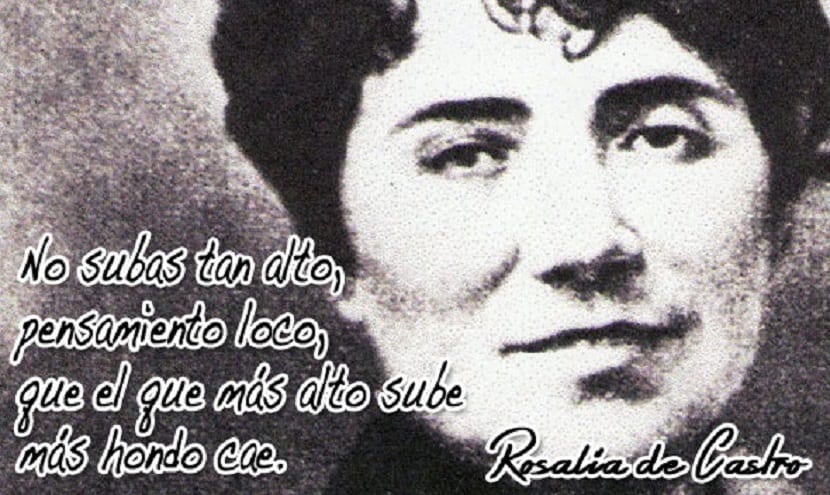
On July 15, 1885, the mother of Galician poetry, Rosalía de Castro, passed away., a lonely, strong and despised woman at a time when the female gender and the Galician lands were despised by the socio-cultural circuits of Spain.
Recognized years after her death, today the author of Galician Songs is an icon of Galicia, one of the most important authors of the 19th century and an example of courage in unjust times, whom we remember today in Actualidad Literatura.
Saudade and Galician jubilation
Although historians and critics insisted on hiding the identity of Rosalía de Castro's father, with the passage of time it became known that the most famous Galician poet in history, born on February 24, 1837 in Santiago de Compostela, was the daughter of the priest José Martínez Viojo and a mother with few economic resources named María Teresa de la Cruz Castro y Abadía, which is why de Castro would be raised by her aunt and, therefore, who would make her aware of the rural heart of Galicia that would inspire her literary universe.
In those years, Galician literature and poetry had been discredited by Spanish, language imposed and concentrated in the cultural scene of central Spain that continued to label part of the contours of the country as poor, rural and uncultivated areas. A thought that struck down the legacy of the Galician-Portuguese lyric that cried out for a new approach in order to resurrect it and return it to its people.
During the childhood lived with her aunt in Padrón y Castro de Ortoño, in La Coruña, Rosalía de Castro began to be aware of how hard life was in the Galician peasant, the melancholy of its people and that feeling of nostalgia for something impossible to reach, which is known in Galician-Portuguese prose as "saudade", a feeling that would completely define the work and life of a woman whom many considered as lonely, independent and melancholic.
However, drawing and music entertained Rosalía's life until she moved to Madrid, where married Manuel Murguía, maximum exponent of the Galician Rexurdimento and creator of the Royal Galician Academy, who after reading the poetry brochure La flor, prompted his wife to publish Cantares Gallegos.
Published in 1863 in Vigo, the collection of poems was inspired by old songs from Galicia that the author readjusted to define poems that dealt with themes such as love, the manners of the Galician land and even the socio-political situation of the time, especially as regards which concerned an immigration led by Galicians who were leaving for Latin America.
The work was appreciated and "adapted" by the Galicians themselves, who turned part of their poems into a symbol of a culture hitherto forgotten.
Galician Songs would be followed by other works such as Follas novas (1880) or On the banks of the river Sar (1884), of a more modernist character and in which the psychic and physical state of the author would become the main claim of her prose. A work that denoted the constant melancholy of a misunderstood woman, far from the rigors of love despite being a wife and mother but, above all, promoted by the disease that would end her life in 1885 due to uterine cancer.
Years passed, and the poetry that had so penetrated Galician society became pigeons that flew over other places, which enraptured the hearts of critics and authors (especially many of the generation of 98), who recognized Rosalía de Castro as the alma mater of Galician letters.
As I remember, nothing better than sharing this verse from Lieders, which summarizes part of the author's universe:
Never has the hope of glory dominated my soul, nor have I ever dreamed of laurels pressing down on my forehead. Only songs of independence and freedom have babbled my lips, although around I had felt, from the cradle already, the noise of the chains that should imprison me forever, because the heritage of women are the fetters of slavery.
Have you ever read Rosalía de Castro?